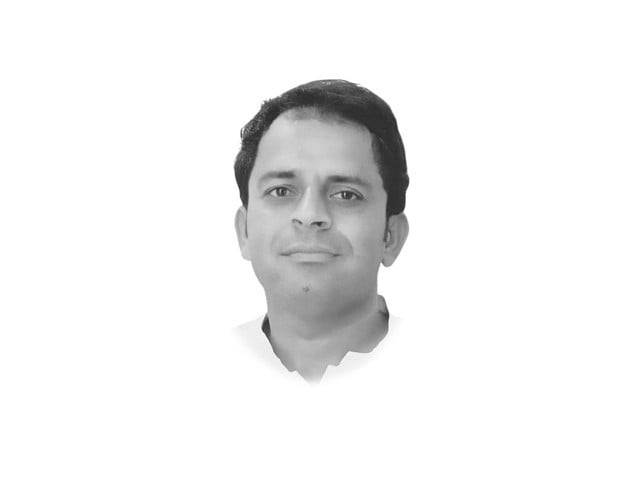Investment paradox and Pakistan
.

Though the considerably underreported phenomenon of capital flight — the exodus of intellectuals and skilled professionals as well as MNCs from the country, alongside the relocation of domestic investment away from it — has persisted for decades, the past three years have accelerated this exodus. The recent announcement of Procter & Gamble — one of the world's largest consumer goods companies — exiting from Pakistan has prompted a few much-needed editorial and op-ed pieces in national dailies.
While most pieces have highlighted the issue of capital flight, they have taken a shallow view, citing economic factors such as currency depreciation, global restructuring challenges and political instability as deterrents to investment and factors behind the inhospitable investment environment. What most of them have lost sight of are the oft-overlooked, intertwined roots or core issues plaguing the country for decades: the source of legitimacy of rulers and their priorities.
As far as the legitimacy of the decision-makers is concerned, it holds the key — both to defining competence and to demonstrating sincerity toward the people at large. This legitimacy has taken shape after a long evolutionary socio-political journey. For most of history, power — wielded through the ignorance of the ruled or sustained by brute force — defined a society's geography, internal dynamics and its potential to influence or conquer others' assets abroad.
The Enlightenment, the codification of transnational laws and institutionalisation — particularly following the Peace of Westphalia in the mid-17th century — considerably diminished the scope of brute force and elevated legitimacy as one of the primary drivers of domestic pursuits and foreign policy. Legitimacy through democratic practices places public welfare and potential prosperity rather than that of the powerful few in pre-modern times at the centre of statesmanship.
Notwithstanding the democratic system in place, the question of legitimacy and the ritualistic establishment of successive ruling dispensations have remained marred by mystery, force, frequent interventions and engineering, without the incumbent hybrid setting being an exception. This is underscored, among many other reports, by PATTAN Development Organization's report "War on Voters" on the February 8, 2024, election. This way, the legitimacy of the succeeding ruling elite, which primarily comprises dynastic despots, is rooted in that of the powerful instead of the public. Therefore, and perhaps rightly, the ruling elite rarely view themselves as public representatives or accountable to the people or feel the need to effectively advocate for their socio-economic uplift in the truest sense or lead the initiatives for national development.
This apathy toward the ruled and the country's potential for inclusive prosperity has long been — and continues to be — manifested in the relative scarcity of domestic investments for the public good by most of those in power, as well as in their persistent reluctance to use the very services they have created in the country or to make it their home after retirement.
In other words, unlike the people, rulers have never lost faith in their own competence and intentions. As a result, they place no trust in their country's healthcare and educational services or financial environment to invest their plundered wealth in. Had that been otherwise, we would not have been witnessing the accelerated exodus of human capital, MNCs and domestic investments today.
Why is this paradox so prominent, particularly in the incumbent political dispensation? This is mainly because the stakeholders — the architects and beneficiaries of this unprecedentedly rigged setting — foresee their ascension to "unbridled" power, perhaps beyond the incumbent reign, as improbable. Therefore, instead of addressing the anomalies that severely affect public life and the viability of investment, the elite prioritises plundering and transferring more wealth abroad and desperately sustaining the predatory system as a backup plan.
















COMMENTS (1)
Comments are moderated and generally will be posted if they are on-topic and not abusive.
For more information, please see our Comments FAQ